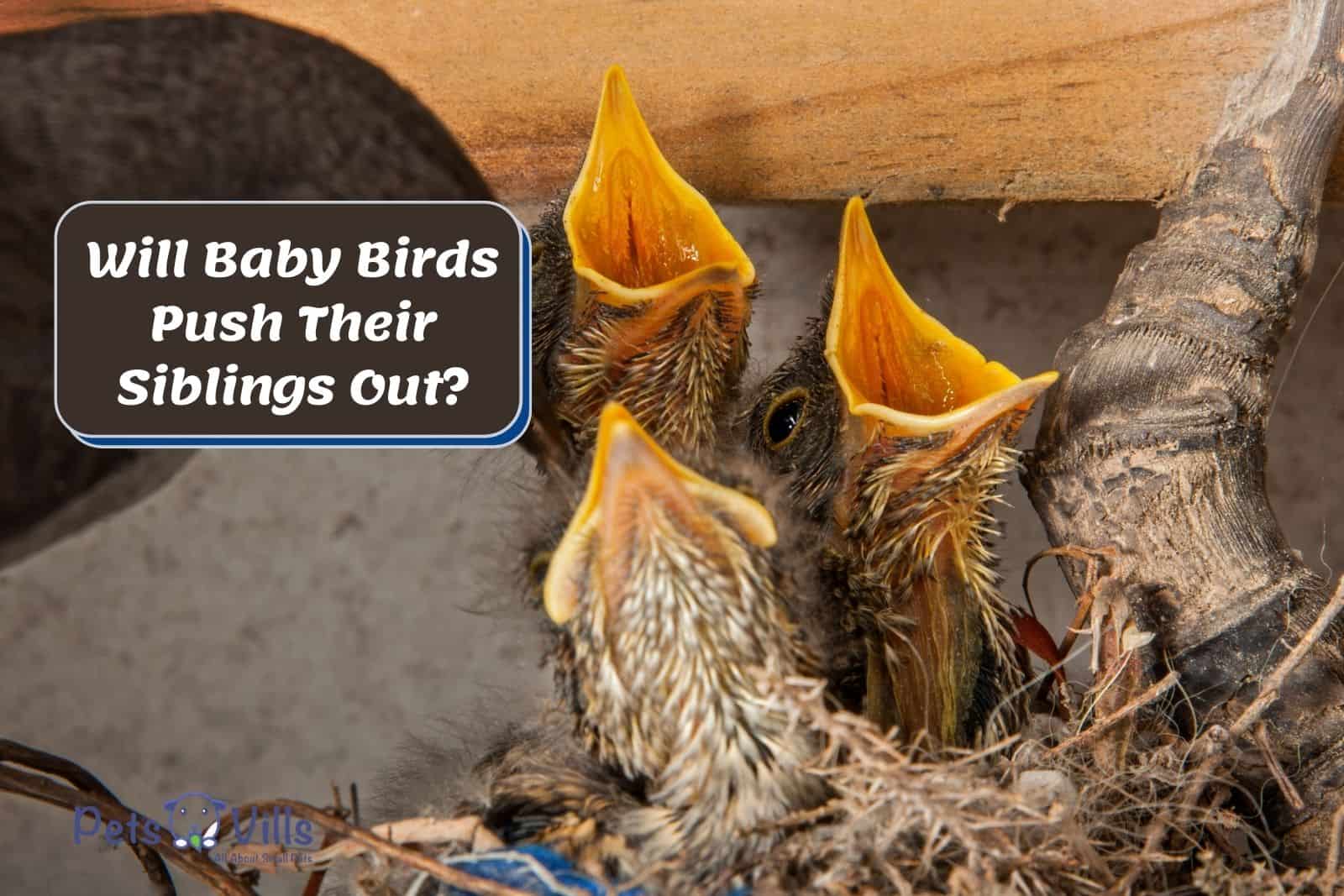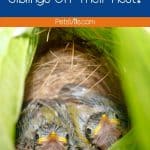Do baby birds push their siblings out of the nest?
Call it instinct; it’s animal behavior in the wild and as tragic as it may sound, it is nature in action.
Yes, there are indeed species of birds who do have the tendency to commit siblicide – the act of killing their own siblings!
Keep reading to learn more!
READ MORE: Can Birds Pick Up Their Babies?
Table of Contents
What Kind of Birds Practice Siblicide?
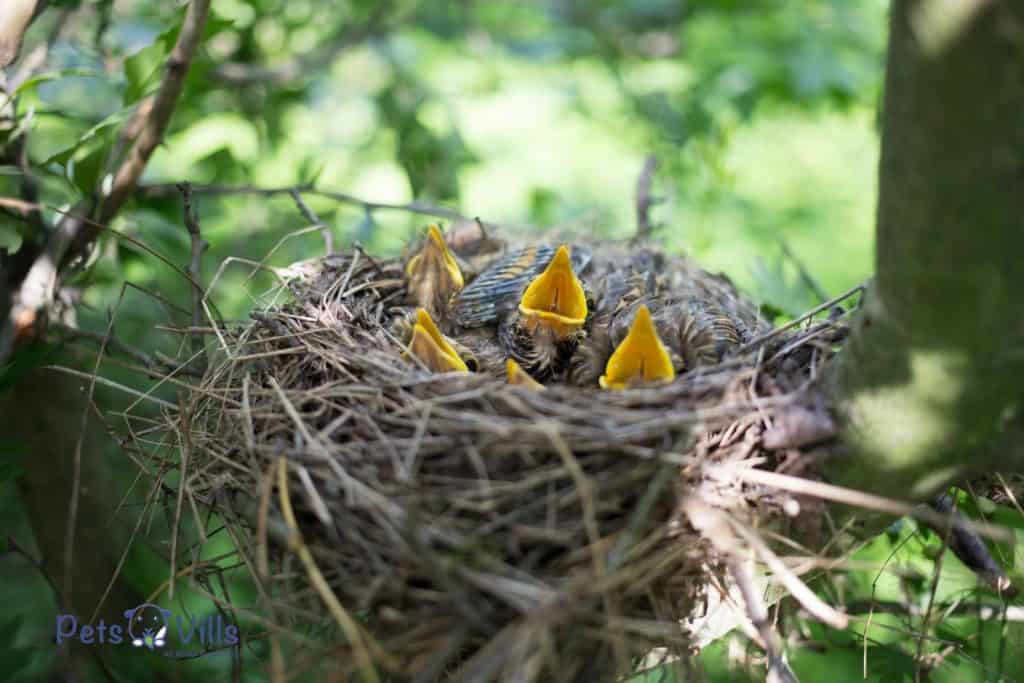
Not all kinds of birds practice siblicide. It is, however, common amongst egrets, boobies, herons, owls, pelicans, and eagles.
This happens especially when birds aren’t simultaneously hatched, usually two to three days apart.
Asynchronous hatching, as it is called, is a scenario where siblicide is most likely to happen.
Check out this video:
Why Does This Happen?
There are a number of reasons why bird siblings will want to eliminate each other.
There are many theories that have been formulated to explain why certain bird species exhibit this behavior.
All of them though seem to boil down to one reason and that is survival.
Insurance Eggs
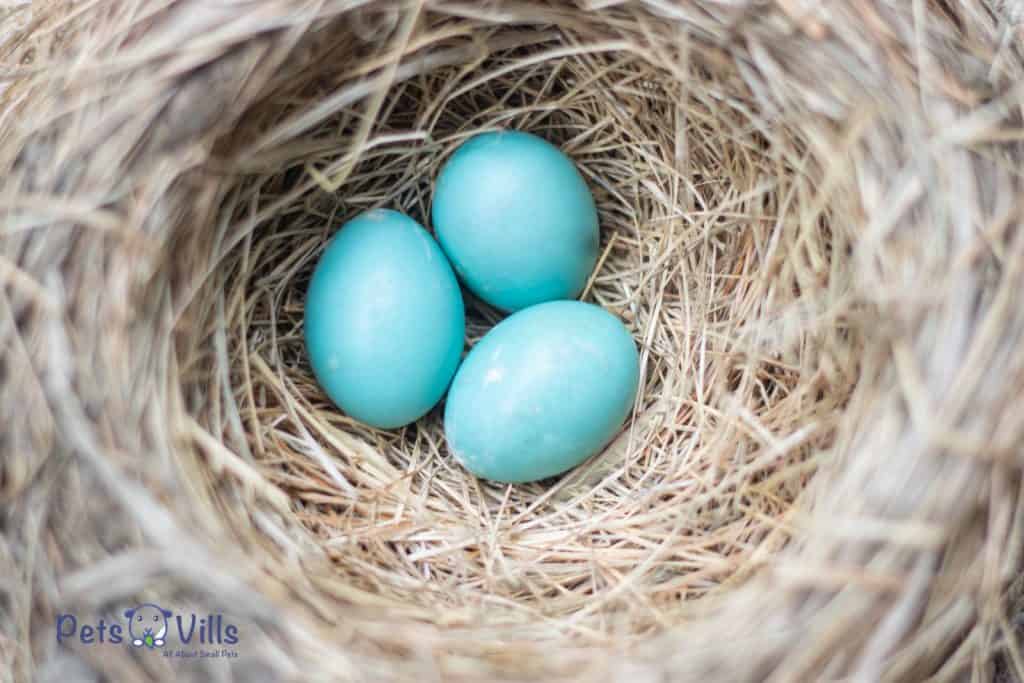
Parent birds usually produce “extra” offspring that serve as a sort of insurance just in case some of their offspring die after getting hatched [1].
Species usually want a continuation of their genetic line. It’s pretty similar to parents wanting to have kids and grandkids.
Perhaps it’s a basic instinct, but it’s all about having a particular lineage thrive for generations. Having extras simply means that the genetic line will continue in order for that particular “branch” of the family to live on.
Check our guide about why baby birds die.
Limited Resources
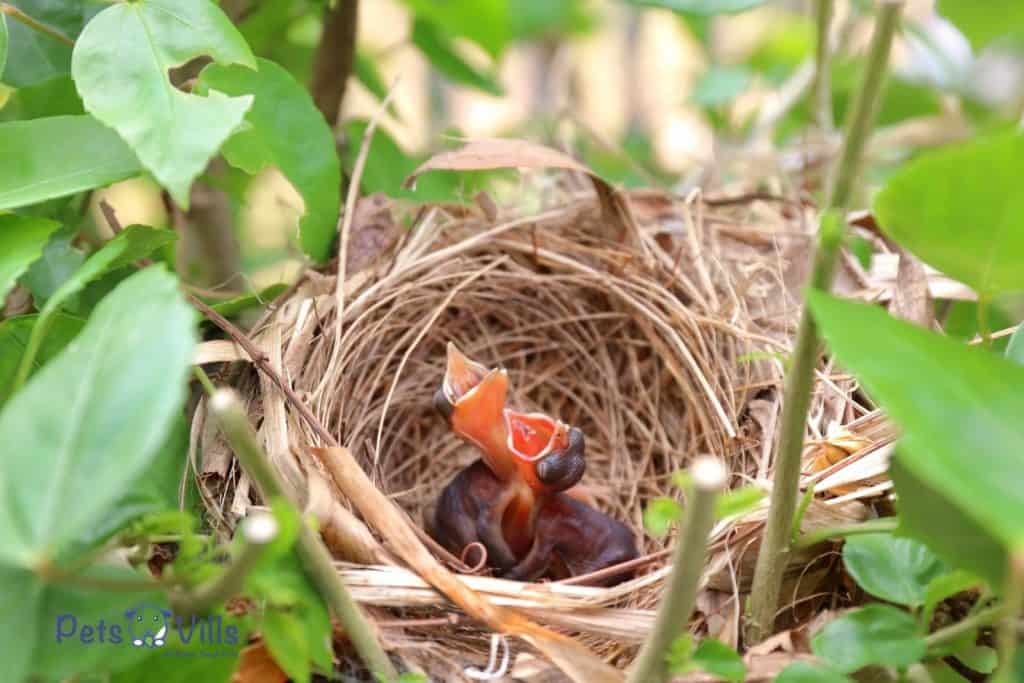
Having insurance eggs would be a practical move for the parent birds for their lineage to continue except that, sometimes, resources can be scarce.
Again, it all boils down to the instinct to survive, which is actually an instinct of any living creature.
Because of limited resources such as food, sibling birds will duke it out to make sure that they survive [2].
In one experiment, researchers observed that removing a chick from a particular nest lessened aggressive behavior in the remaining hatchlings. Returning the chick increased fighting amongst the new brood.
Why don’t parent birds intervene, you ask? Perhaps it’s out of practicality [3, 4].
Having one less mouth to feed – usually the weakest – gives the whole family a higher chance of survival.
At the same time, they are assured that those that are left are the ones who are the strongest.
Natural Selection
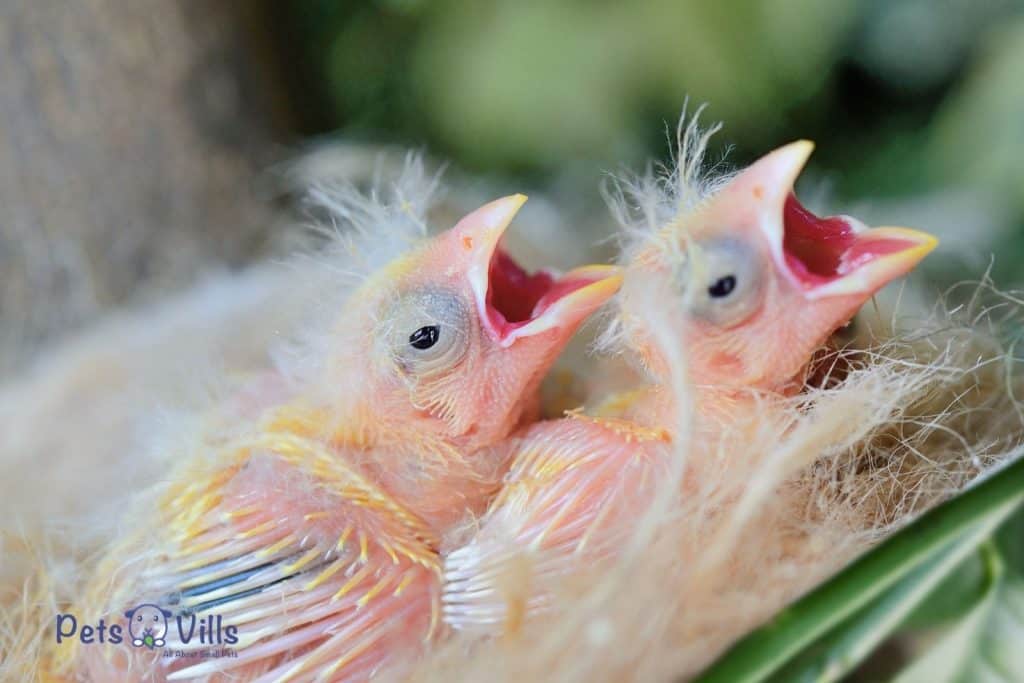
This has always been the case for many species. It’s usually the strongest that survive.
When the hatchlings finally come out of their shells (pardon the pun), the ones that are born first usually gang up against the last to come out.
These are the ones that are usually the weakest too.
As horrible as it may seem, the parent birds do not interfere with the infighting, especially if resources are scarce.
This is a practical measure taken in order for the new family to survive and, at the same time, it serves as an assurance that only the strongest and best are left in the breed.
Raging Hormones
Trust testosterones to contribute to aggressive behavior, even in animals.
Testosterone is a hormone known to contribute to masculine traits in many species including a more aggressive streak in character.
It has been seen in boobies where chicks have high levels of testosterone.
This is probably why the chicks tend to duke it out after being hatched from the eggs. (Yes, it sounds paradoxical for boobies to have high levels of testosterone. Pardon the pun…yet again…)
Taking One for the Team
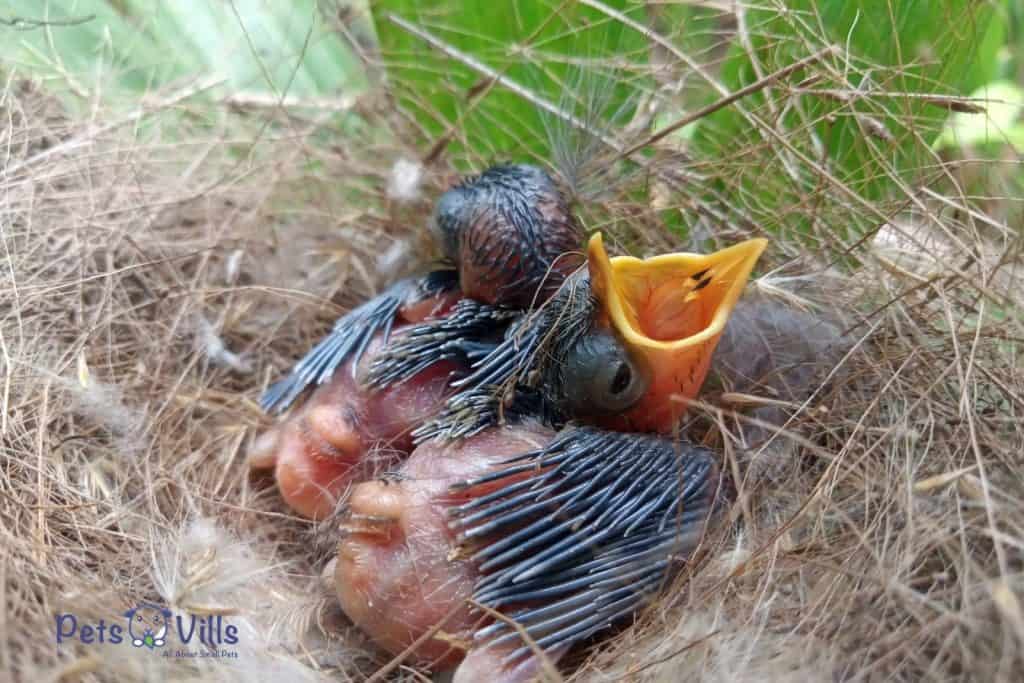
Or maybe it’s sacrificing one for the team? In the animal kingdom, some species try to attach themselves to other stronger species in order to protect themselves from other potential predators.
Take for example the case of egrets in Florida which put their nests near places where alligators breed. They do so since alligators serve as “potential bodyguards” against other species which may be a threat to their existence [5].
Everything comes at a price though. In exchange, these alligators are served with chicks—most probably the weakest ones—as payment for the added protection that the bird family gets.
Ahhhh, yes. Even in the animal kingdom, mafia-style rules do exist.
Maybe it’s because we are programmed to think like humans that siblicide may sound quite morbid, if not barbaric.
But the rules of the animal kingdom are quite different from ours, despite us being part of it.
In the wild, animals have to survive. That doesn’t come easy, especially when there will be one species that will be mightier than the other.
This is probably why survival instincts are the first to kick in rather than emotions, which we humans tend to exhibit.
Final Thoughts
Whatever the reason, it still is quite interesting to know and study the different types of behavior that animals have.
We need to go past their “cuteness” and understand that they are all truly distinct species with characteristics very different from the human race.
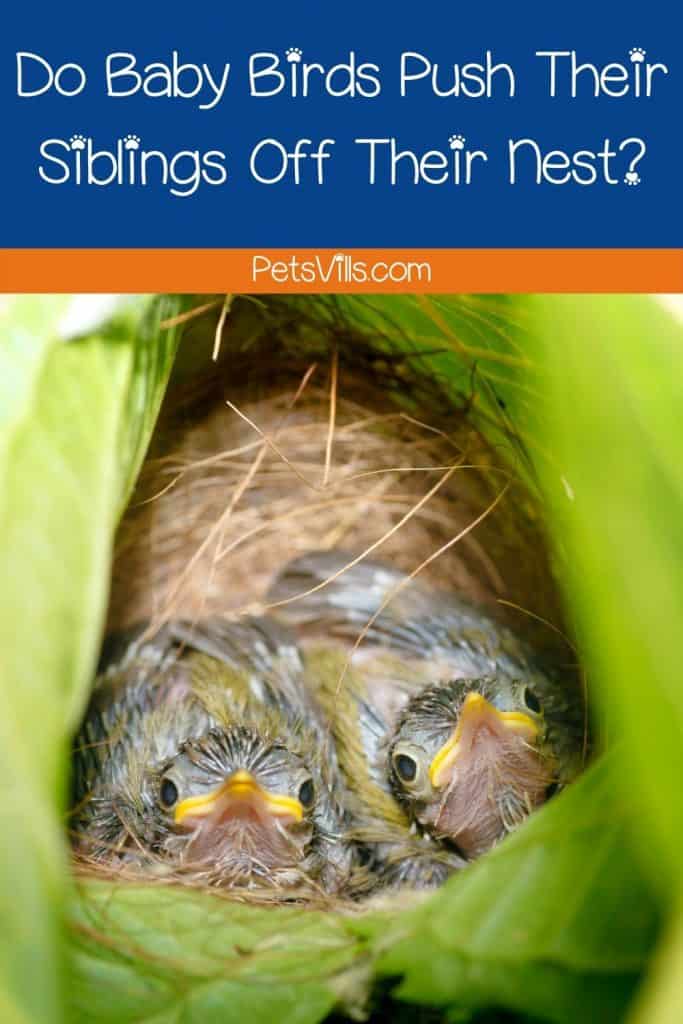
What do you think of my answers to “Do Baby Birds Push Their Siblings Out of the Nest?” Let us know your thoughts on this topic below!
Resources
- 1. Evolution of Obligate Siblicide in Boobies. 1. A Test of the Insurance-Egg Hypothesis | The American Naturalist: Vol 135, No 3 [Internet]. The American Naturalist. 2021 [cited 2021 Dec 7]. Available from: https://www.journals.uchicago.edu/doi/abs/10.1086/285049#:~:text=The%20insurance-egg%20hypothesis%20predicts%20that%2C%20if%20a%20second,a%20hatchling%20to%20the%20cost%20of%20egg%20production.
- 2. Mock DW, Drummond H, Stinson CH. Avian Siblicide. American Scientist [Internet]. Sigma Xi, The Scientific Research Society; 1990 [cited 2021 Dec 7];78:438–49. Available from: https://www.jstor.org/stable/29774180
- 3. Breed MD, Moore J. Nesting, Parenting, and Territoriality. Animal Behavior [Internet]. 2012 [cited 2021 Dec 7];341–65. Available from: https://www.sciencedirect.com/science/article/pii/B978012372581300012X
- 4. Eldon Greij explains why some birds practice siblicide [Internet]. BirdWatching. 2018 [cited 2021 Dec 7]. Available from: https://www.birdwatchingdaily.com/news/science/eldon-greij-explains-siblicide/
- 5. Greene S. In the Everglades, birds nest near alligators for safety. But what’s in it for the gators? [Internet]. Los Angeles Times. Los Angeles Times; 2016 [cited 2021 Dec 7]. Available from: https://www.latimes.com/science/sciencenow/la-sci-sn-alligator-bird-alliance-everglades-20160303-story.html
Deanna is a passionate animal lover. She is the mom of several guinea pigs and sugar gliders.
When she’s not writing, Deanna loves listening to country music, or watching Dancing With The Stars.
Read her : Latest Articles
FIND HER ON: FACEBOOK and LINKEDIN and

